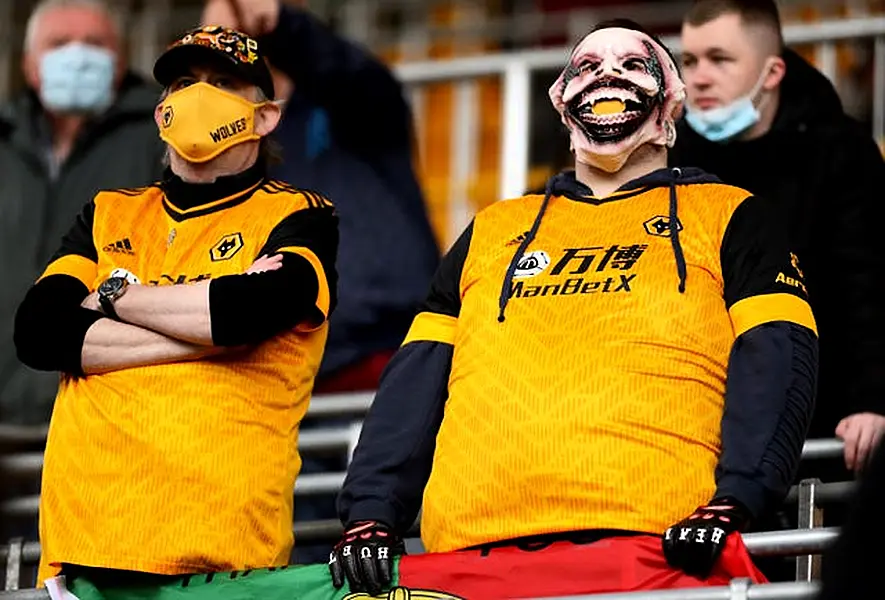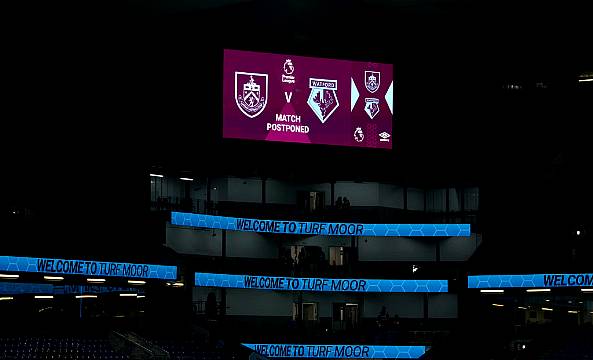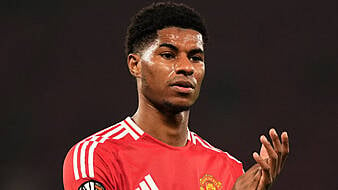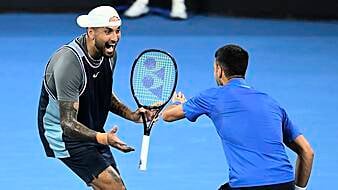The Premier League’s Covid-19 crisis deepened on Wednesday as Burnley’s home match with Watford became the third game in a week to be postponed.
Positive cases in the Hornets camp forced the game to be postponed at short notice, following on from the Tottenham v Brighton match last Sunday and the Brentford v Manchester United match scheduled for Tuesday also being called off.
The postponement of Tottenham’s Europa Conference League match against Rennes last week due to an outbreak at Spurs also led to the London club requesting that Thursday’s Premier League match between Spurs and Leicester be rescheduled in order to get the Rennes game played.
📰 Further information regarding the postponement of tonight's game.
— Burnley FC (@BurnleyOfficial) December 15, 2021
Advertisement
The Premier League is understood to have rejected the request. The league tried to assist with the rearrangement but had to protect its own season, with Spurs already having games against Burnley – which was called off due to snow – and Brighton to rearrange.
UEFA announced on Saturday that no new date was possible for the Tottenham-Rennes match and said the matter had been referred to its control, ethics and disciplinary body for a decision to be taken, with either side potentially being awarded a 3-0 win depending on the adjudication.
It is understood the Premier League also rejected at least one further request to postpone a match for Covid-related reasons this week, amid a nationwide rise in cases driven by the highly transmissible Omicron variant.
The league confirmed the postponement of the Burnley v Watford match in a statement on Wednesday evening.
“The decision was taken following guidance from medical advisers due to an ongoing Covid-19 outbreak within Watford’s squad,” the statement said.
“As a result, the club has an insufficient number of first team players available to fulfil the match.
“The Premier League understands this decision will disappoint and frustrate fans who were due to attend this evening’s game and apologises for the inconvenience and disruption caused at such short notice.
“In considering any application to postpone, the board considers a range of sporting and medical factors. Each decision is taken on a case-by-case basis with everyone’s health of utmost importance.
EFL statement: Millwall#EFL pic.twitter.com/lx6z6Uqrcd
Advertisement— EFL Communications (@EFL_Comms) December 15, 2021
Two matches due to be played in the Championship on Saturday – Reading v Luton and Millwall v Preston – were also postponed on Wednesday due to Covid cases among both home clubs. The EFL announced on Sunday that QPR’s match against Sheffield United the following night had been postponed, and said on Tuesday that Rangers’ game on Saturday against Swansea was also off.
The Premier League has reintroduced Covid emergency measures across all clubs and added in extra testing in the wake of a season-high 42 positive Covid cases being recorded last week.
Any player or member of staff must take a lateral flow test in their car before entering a training ground, and PCR tests will be administered at least twice a week.
The league has not published vaccination rates among players since October, but is conscious of the importance of vaccination in the current climate and is reviewing the data with a view to providing an update.
The rules for spectators have also changed from Wednesday, with the Government’s Covid Plan B measures coming into force in England.
With the introduction of the Government’s Plan B measures, there’s new requirements for attending a #PL match ➡️ https://t.co/Oi7zX6UkMd pic.twitter.com/VjqxnTK8L6
— Premier League (@premierleague) December 15, 2021
Fans attending a venue holding more than 10,000 people must be prepared to provide proof of vaccination or a negative lateral flow test taken within 48 hours of the match.
However, only around 20 per cent are likely to be spot-checked, with the precise percentages agreed between each club, its local safety advisory group (SAG) and the local public health authority.
There is an appreciation that checking a higher percentage could create public health issues if crowds build up, although clubs and SAGs have been encouraged to ensure checks take place at various times and entry points to avoid the same people being checked each week, and to ensure people do not feel they can avoid checks if they arrive at a ground late.
Fans will also have to complete a self-declaration form saying they will only attend if they have proof of vaccination or a recent negative test, and it is up to individual clubs whether failure to provide certification results in any sanction beyond being turned away from the match in question.
It is understood the league is happy that negative tests form part of Plan B – initially it had been expected to vaccination-only certification which would have put stewards at the front line of arguments over vaccination status.
The effectiveness of the Covid Plan B measures and the spot-checks will be closely monitored, with local health authorities having worked with the clubs all season to flag up any outbreaks connected to matches.

Masks must be worn in indoor areas of stadiums, although this will be down to stewards to enforce, who will have to make a safety call over whether intervening will not create a flashpoint which has more serious public health implications.
The league is not issuing any advice to supporters at this stage to limit singing, shouting or physical contact with others, and will instead mirror and amplify Government guidance as it is released.
The league is understood to have had assurances from Government that it wants to keep sport open for as long as it is possible to do so amid the renewed Covid crisis, but accepts the Premier League, along with other competitions, will be subject to any tightening of restrictions that may be deemed necessary.







